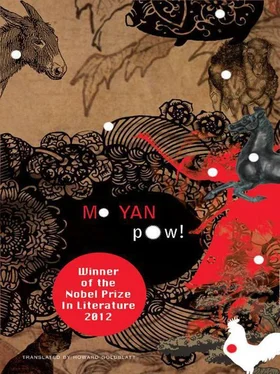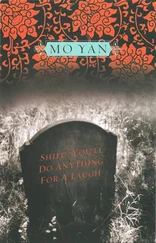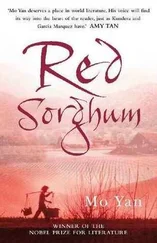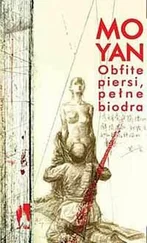My parents sent me to school soon after New Year's, not the normal time to begin. But, thanks to Lao Lan's intervention, the authorities were happy to let me enrol. They also enrolled my sister in the Early Red Academy, or, as it's called now, preschool.
The school gate was just outside the village, a hundred metres on the other side of Hanlin Bridge. The one-time manor of the Lan family, it had fallen into a state of rot and disrepair. The buildings, with green brick walls and blue tiled roofs, had once heralded the glories of the Lan family to all who laid eyes on them. Locally, the Lans were not thought of as rustic rich. Members of Lao Lan's father's generation had studied in America, which gave him something to be proud of. Four metal characters in red—  —that spelt out ‘Hanlin Primary School’ were welded onto the cast-iron arch spanning the gate. Already eleven, I was placed in the first grade, which made me nearly twice the age of, and a head taller than, my classmates. I was the centre of attention for students and teachers alike during the morning flag-raising ceremony, and I'll bet they thought that a boy from one of the upper classes had mistakenly lined up with them.
—that spelt out ‘Hanlin Primary School’ were welded onto the cast-iron arch spanning the gate. Already eleven, I was placed in the first grade, which made me nearly twice the age of, and a head taller than, my classmates. I was the centre of attention for students and teachers alike during the morning flag-raising ceremony, and I'll bet they thought that a boy from one of the upper classes had mistakenly lined up with them.
I was not cut out to be a student. It was sheer agony to sit on a stool for forty-five minutes and behave myself. And not just once a day, but seven times, four in the morning and three in the afternoon. I began to feel dizzy at about the ten-minute mark and wanted nothing more than to lie down and go to sleep. I could hear neither my teacher's murmurs nor my classmates’ recitations. The teacher's face faded from view and was replaced by what looked like a cinema screen across which danced images of people, cows and dogs.
My homeroom teacher, Ms Cai, a woman with a moon face, a head of hair like a rat's nest, a short neck and a big arse—she waddled like a duck—hated me from the beginning but chose to ignore me. She taught maths, which invariably put me to sleep. ‘Luo Xiaotong!’ she shouted once, grabbing me by the ear.
Eyes open but brain not yet in gear, I asked: ‘What's wrong? Someone die at your house?’
If she interpreted that as a curse that augured a death in her family, she was wrong. I'd been dreaming of doctors in white smocks running down the street shouting: ‘Hurry, hurry, hurry, someone's died at the teacher's house.’ But, of course, she couldn't know that, which is why she interpreted my shout as a curse on her. If I'd said that to one of the less civilized teachers at the school, my ears would have been ringing from a resounding slap. But she was a cultured woman; she merely returned to the front of the room, her cheeks flushed, and sniffled like an ill-treated girl. Biting her lip, as if to pluck up courage, she said: ‘Luo Xiaotong, there are eight pears and four children. How do you divide them up?’
‘Divide them up? You fight over them! This is an age of “primitive accumulation”. The bold stuff their bellies, the timid starve to death and the biggest fist wins the fight!’
My answer got a laugh out of my dimwitted classmates, who could not possibly have understood me. They just liked my attitude, and when one laughed the others followed, filling the room with laughter. The boy next to me, whom everyone called Mung Bean, laughed so hard that snot spurted from his nose. Under the guidance of a dimwitted teacher, that pack of dimwits was growing even more dimwitted. I stared at the teacher with a triumphant look but all she could do was bang the table with her pointer.
‘Stand up!’ she demanded angrily, her face turning deep red.
‘Why?’ I asked. ‘Why should I stand when everyone else stays in their seat?’
‘Because you're answering a question,’ she said.
‘I'm supposed to stand when I answer a question?’ My voice dripped with sarcasm and arrogance. ‘Don't you have a TV at home? If you don't, does that mean you've never watched TV? Have you never seen a pig walk just because you've never eaten pork? If you've watched TV, have you ever seen a press conference? The officials don't stand up to answer questions—the reporters stand up to ask the questions.’
That drew another laugh from my dimwitted classmates, who, once again, could not possibly have understood me. Not a clue! They might watch TV but cartoons only—never serious programmes, like I did. And never, not in a million years, would they be able to understand world affairs like I did. Wise Monk, even before that year's Lantern Festival, we had a Japanese 21-inch colour TV with a rectangular screen and a remote. A TV like that these days would be considered an antique, but then it was ultra-modern; and not onlu in our village but even in cities like Beijing and Shanghai. Lao Lan had sent it over with Huang Bao and, when he took it out of the box, all black and shiny, we were absolutely amazed. ‘It's gorgeous, absolutely gorgeous,’ was Mother's comment. Even Father, never one to beam with happiness, said: ‘Would you look at that! How in the world did they make something like that!’ Even the Styrofoam packing elicited whoops of surprise from him—he found it incredible that something useful could be so light and airy. It was nothing to me, of course—we'd seen plenty of it on our scavenging route, but we never gave it a second thought because none of the recycling centres would take it. Besides the TV set, Huang Bao brought along a herringbone antenna and a seamless 15-metre metal pole coated with anti-rust material. When we stood it up in the yard it made our house look like a crane amid chickens, towering over the neighbourhood. If I could have climbed to the top of the pole, I'd have had a bird's-eye view of the whole village. Our eyes lit up when the first gorgeous images flashed across the TV screen. That TV raised the standing of our family to a new level. And I grew a lot smarter. Enrolling me in school—in the first grade, no less—was little more than a joke of international proportions. Slaughterhouse Village could boast two individuals who were knowledgeable and well informed: Lao Lan and me. Written words were a stranger to me, but I was no stranger to them, at least that's how it felt to me. There are lots of things in this world that do not need to be studied, at least not in a school, in order to be learnt. Don't tell me you have to go to school to be able to know how to divide eight pears among four children!
My response rendered the teacher speechless. I saw something glitter in her eyes and knew that when they finally spilt they'd be tears. I was proud of myself but I was also frightened. I knew that a student who made his homeroom teacher cry would be seen as a bad seed, although, paradoxically, people would know he had a bright future with endless possibilities. If his development went in the right direction, a child like that was virtually guaranteed an official position; if not, we're talking big-time criminal. But one way or other, he'd be special. Sad to say, but thank goodness, those glittering objects in the teacher's eyes did not spill.
‘Leave the room,’ she said, softly at first, and then shrilly: ‘Roll that fanny of yours out of here!’
‘A ball's the only thing that can roll out of here, Teacher, except a hedgehog, when it rolls itself into a ball. I'm not a ball, and I'm not a hedgehog, I'm human, so I can walk out of here or run out of here or, of course, crawl out of here.’
‘Then crawl out of here.’
‘But I can't do that either,’ I said. ‘If I hadn't learnt how to walk yet, then I'd have to crawl. But I'm a big boy now, and if I start crawling it'll mean I've done something wrong, but since I've done nothing wrong I can't crawl out of here.’
‘Just get out of here, get out…’ She was almost hoarse from shouting. ‘Luo Xiaotong, you make me so angry I could burst…you and that perverse logic of yours…’
Читать дальше

 —that spelt out ‘Hanlin Primary School’ were welded onto the cast-iron arch spanning the gate. Already eleven, I was placed in the first grade, which made me nearly twice the age of, and a head taller than, my classmates. I was the centre of attention for students and teachers alike during the morning flag-raising ceremony, and I'll bet they thought that a boy from one of the upper classes had mistakenly lined up with them.
—that spelt out ‘Hanlin Primary School’ were welded onto the cast-iron arch spanning the gate. Already eleven, I was placed in the first grade, which made me nearly twice the age of, and a head taller than, my classmates. I was the centre of attention for students and teachers alike during the morning flag-raising ceremony, and I'll bet they thought that a boy from one of the upper classes had mistakenly lined up with them.










